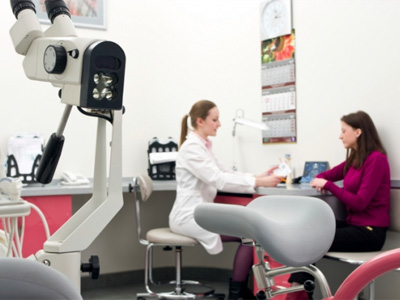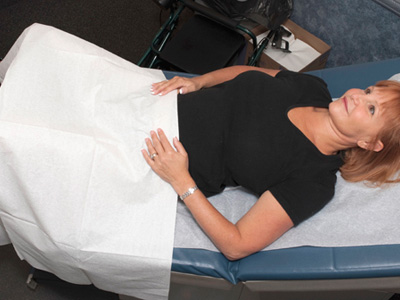Pap Smears
Having an abnormal pap smear can cause a lot of angst. However, this is something that may not need treatment and if it does it often is a small day procedure. You will need a colposcopy (microscopic examination) and possibly a biopsy. You can find useful info here:
Menopause
Menopause can be characterized by physical and emotional changes. Approaching the time of your menopause (perimenopause), you may experience irregular menses, dryness of the vagina, dry skin, thinning hair, slow metabolism, weight gain, hot flushes, night sweats, problems with sleeping, and mood changes. You may notice the following physical changes: vaginal and urethral tissues will begin to lose their elasticity, and you may experience the sudden urge to urinate, or may lose control over your bladder (urge incontinence or stress incontinence). You may also become more prone to urinary tract infections. The loss of moisture and elasticity of your vagina can cause discomfort during intercourse, and can affect your sexual desire (libido).
Life style advice to manage hot flushes would be to avoid hot beverages, alcohol, caffeine and spicy foods. Use water-based vaginal lubricants to help you with vaginal dryness and discomfort. Reduce stress, get adequate sleep, eat healthy, stay active and don’t smoke. Exercise regularly.
Treatment may include life style changes, vaginal oestrogens and hormone replacement therapy (HRT) or non-hormonal alternatives to HRT.
The Continence Foundation of Australia has produced a fact sheet to assist women who are looking for more information about menopause and bladder and bowel control. It covers topics including
- Common symptoms
- Ways that Menopause can cause problems
- Prevention and management
Heavy Periods
If your periods are heavier than normal or irregular we may order a number of tests such as blood tests and we may perform imaging such as a pelvic ultrasound that may find pathology in the uterine cavity or cervical canal. A recent PAP smear is necessary to rule out cervical pathology and diagnostic operative procedures such as hysteroscopy where a thin long camera is inserted through the cervix into the uterine cavity to visualise any pathology. A biopsy (curettage) can be done at the same time.
Treatment for abnormally heavy vaginal bleeding depends on the cause. If a uterine structural pathology is found, such as polyp or fibroid, usually surgical removal is required via hysteroscopy. Other surgical management options for heavy periods include endometrial ablation where the lining of the uterus is removed to stop it from bleeding during periods or as a last resort hysterectomy.
Incontinence & Prolapse
The most common forms of incontinence are stress incontinence and urge incontinence. Stress incontinence means leakage of small amounts of urine during physical movement such as coughing, sneezing, lifting heavy objects, and straining that suddenly increases the pressure within the abdomen whereas urge incontinence means leakage of large amounts of urine at unexpected times, including during sleep, and where women experience a sudden urge. Additional test may be requested such as urine collection, urodynamic studies and ultrasound.
Treatment depends on the cause of the incontinence and type of incontinence. We sometimes recommend the Neotonus magnetic incontinence therapy chair which produces stimulation to vital muscles that maybe difficult to activate through manual pelvic floor exercise alone. MRI strength magnetic field pulses initiate muscle contractions. The technology is safe, painless and does not use any radiation ( x-rays). Patients remain fully clothed, no probes or electrodes, and remain comfortably seated for each 20 minute session. Normally patients receive 16 treatments. We recommend patients attend twice a week.
Chair therapy can be used to treat urinary incontinence and can be helpful pre- and post-surgery and post-partum for pelvic floor weakness. Pelvic floor exercises can also help you strengthen your pelvic floor muscles and improve urinary incontinence.
Sometimes surgery is the best solution for stress incontinence.
Urge incontinence may require bladder retraining or medication. Avoiding caffeine may help as well.
Pelvic organ prolapse (POP) or genital prolapse is the term used to describe what happens when pelvic organs like the uterus, bladder or rectum slip down from their normal anatomical position and either protrude into the vagina or press against the vaginal walls. There are different types of prolapse and symptoms depend on which type of prolapse you have. Treatment options are pessary use or surgery.
Neotonus Chair
The Neotonus chair is a non-surgical, non-invasive therapy for the treatment of incontinence caused by a weakening of the pelvic floor muscles. The Neotonus chair can offer unique therapeutic benefits and is unlike any other therapy as it exercises all the muscles of the pelvic floor to rebuild strength and endurance, re-establishing bladder control.
Based on a technology called Extracorporeal Magnetic Innervation, the chair produces highly focused pulsing magnetic fields causing the muscles to contract and relax with each magnetic pulse and is completely painless. Patients sit fully clothed in the comfortable Neotonus chair and experience a small vibration or tapping while sitting allowing the therapeutic fields to be easily aimed at the muscles of the pelvic floor that control continence.


